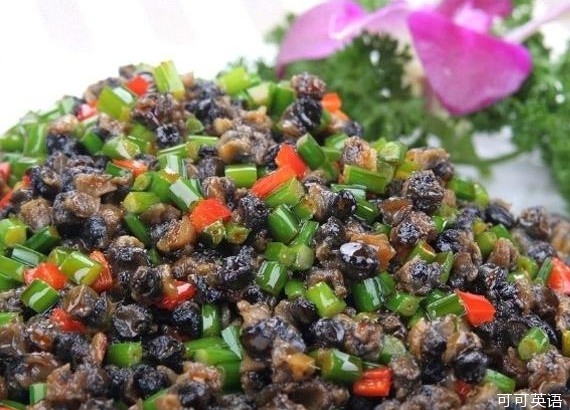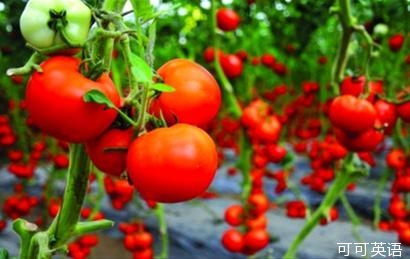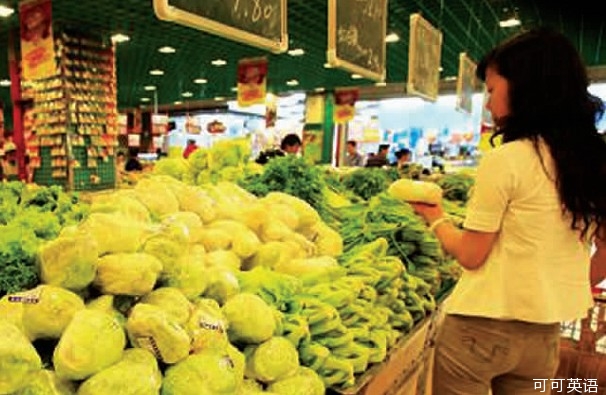
The deal last week by Shuanghui, China's largest pork producer, to buy U.S. pork company Smithfield at a big premium shows how much Chinese are willing to pay for safe food.
上周中国最大的猪肉生产商双汇给出大幅溢价,宣布收购美国猪肉制造商史密斯菲尔德,由此可以看出,中国人为了安全的食品不吝付出高价。
After a spate of food scandals, it is no surprise that consumers in China are hugely concerned about food safety. David Laris, a chef and creator of several high-end restaurants in Shanghai, reckons that if a family of four in Shanghai eats just organic food, the grocery bill would be about $600 a week. 'At home, we spend too much money buying food; there is no shortcut financially, ' he said.
在一系列和食品有关的丑闻之后,中国普通消费者当然非常重视食品安全。在上海开了几家高级餐厅且担任大厨的David Laris说,如果一个上海的四口之家只吃有机食品,那么一周买菜的开销就有三四千元人民币之多,“我们在买菜上花太多钱了,在这方面的开支没法走捷径”。
But industry insiders, doctors and consumers say there are ways to reduce the risks of eating food produced in China without going over budget.
但通过同业内行家、医生还有普通消费者的访谈后发现,中国消费者还是有既降低“中国制造”的食品风险,同时又不超出预算的办法的。
Mr. Laris says he can't run a profitable restaurant selling all organic food, so he uses a combination of imported food and carefully sourced local ingredients.
知道你的食品来自哪里。Laris先生不认为他的餐厅如果只用有机原料还能赚钱,所以他除了使用进口食品,还会仔细挑选本地的原料。
It is ironic for a country that has a goal of moving people from farms to cities that some city dwellers now say they are growing their own vegetables and rice, and making their own bread and yogurt.
考虑到中国的目标是让农民更多地搬到城市里生活,听到城里人开始自己种植蔬菜和米,还有自己做面包和酸奶,不免让人感到有点意外。有些餐厅也追赶了这一潮流。比如上海有一家叫G+极食的餐厅,在店里种植蘑菇和豆芽,饭后顾客还可以把蘑菇根茎拿回家去继续种植。
China Resources Group's Wu Feng Butchers, a distributor of mainland beef and pork in Hong Kong, now is also serving its home market with export-quality products as demand grows.
进口的蛋白质价格相当不菲。但除了菜场里30元一只的鸡和高级超市里120元一只的法国春鸡,还是有些中间地带的。比如华润集团旗下的五丰行,原来主要给香港供应大陆牛肉和猪肉,但现在随着国内需求的上升,也开始服务本地市场。
Oil from restaurant waste bins and gutters are often packaged and resold as cooking oil after some rudimentary reprocessing. When her family eats out, they order pizzas, because that is less likely to use local oil.
在家吃饭和中午带饭也成为新的潮流。上海一位家庭主妇Laura Zhang说,就算五星级酒店的中国菜,也难免没有地沟油,那些从厨余和阴沟里搜集来的油往往只是粗粗过滤一下就拿去再卖。所以她们要出去吃饭时常常点比萨饼,因为相对来说它用本地油的可能性不大。
Milk for children is one area where most people won't compromise, so they buy imported dairy products. The country's dairy industry hasn't recovered from a 2008 scandal in which an estimated 300, 000 babies were sickened and six were killed by tainted powdered-milk formula.
注意你最常吃的食品。对于给孩子喝的牛奶,消费者是最不愿意妥协的,所以人们一般都买进口乳制品。中国乳制品行业一直没有能够从2008年的丑闻中恢复过来,当年估计有30万个宝宝因为喝了毒奶粉而患有结石病,其中有六人死亡。

Foreign brands of baby formulas can sell for up to twice as much as domestic brands. But they often use nonfat milk powder and add vegetable oil, which may be harder for babies to digest. A lot of domestic brands now use imported raw ingredients, so the price gap hardly looks justifiable for budget-conscious consumers.
外国品牌的奶粉在中国可以卖到本地奶粉价格的两倍之多。但它们常常使用脱脂奶粉,再加入植物油,这对婴儿的消化未必是好的。其实现在很多本土品牌也主要使用进口奶源,所以对于注重价格的消费者来说,这么大的价格差距看著有点不值。
Rice is another staple that Chinese consume in large quantities. Last month, the government reported that nearly half the samples of rice in Guangzhou bore cadmium above permissible levels news that struck a nerve across China. Consumers may be better off buying foreign rice, despite the cost. Imported Thai rice in Shanghai, at $3 per kilogram, is almost 50% more expensive than the price in Hong Kong.
大米也是另一种大量消费的食品。最近广州近一半的大米被发现有毒,这也触动了中国人的神经。消费者最好还是买进口大米,虽然在上海卖的进口泰国大米要18元左右一斤,比它们在香港的售价要高出近50%。
Buy a water purifier. They range from simple attach-to-the-faucet models to more-elaborate filtering systems. But even the expensive models are far cheaper than bottled water and are effective in removing much of the pollutants from the water.
买水净化器。从一个简单套上水龙头的磨具,到一些高级的过滤系统都可以。就算那些最豪华的滤水系统,还是要比买瓶装水划算,并且能够有效地去除水中的很多杂质与污染物。
Find a number of brands that you trust, and rotate among them. Don't buy all your eggs from the same basket, even if it is a well-trusted Western brand. In 2011, some Wal-Mart stores in China were accused by officials in Chongqing of mislabeling regular pork as 'organic.' The incident led to the temporary closure of 13 stores and a fine of 3.65 million yuan ($596, 000). Since then, Wal-Mart has overhauled management at its stores in Chongqing and implemented a food-safety compliance system in the company's stores across the nation.
经常更换供应商。消费者最好找到他们相信的几个品牌,然后在它们之间轮换。不要把所有的鸡蛋都放在同一个篮子里面,就算它们是让人普遍信任的西方品牌,也难保没有问题。比如沃尔玛在中国的某些超市,也发生过把普通的猪肉标成有机猪肉出售的情况。
Big brands aren't necessarily better. 'You may want to drink cow milk for 11 months and buffalo milk for a month, and have some quail eggs instead of just chicken eggs, ' said Shaun Rein, managing director of China Market Research.
大品牌未必就是更好的。中国市场研究(China Market Research)董事总经理Shaun Rein说,你可以一年中有11个月喝牛奶,然后有一个月喝水牛奶,或者是把鸡蛋和鹌鹑蛋搭配着吃。水牛奶因为是个新的行业,希望它还没有染上一些旧毛病。

Shuanghui's big pig deal wasn't an accident. Some of the worst problems with food in China from dead pigs floating in a river in Shanghai to fox and rat meat disguised as beef and lamb occur in meat. While vegetables aren't immune to problems like toxic soil and pesticides, they are less likely to carry large amounts of antibiotics and hormones.
少吃肉。中国海外大购猪肉并非是偶然的。中国很多糟糕的食品安全事件,从黄浦江里的死猪到被扮成牛肉或者羊肉的狐狸和老鼠肉,都和肉有关。虽然蔬菜也难逃有毒土壤和危险杀虫剂的污染,但它们起码不太可能有大剂量的抗生素和荷尔蒙。
Not surprisingly, vegetarianism is gaining traction among health-conscious urbanites in China, though it is still uncommon in much of the country. 'Vegetable is the lesser of two evils, ' said Sandy Chen, research director of consumer consultancy TNS. Even former Premier Wen Jiabao proposed a nationwide campaign of 'one vegetarian day every week.'
不让人意外的是,原来在中国稀罕的素食主义,目前在注重健康的城里人中开始流行了。消费调查研究公司TNS的中国研究主管Sandy Chen说,这是两害相权取其轻。就连前国务院总理温家宝也曾经在全国范围内提倡一周一天吃素。
It's hard to be completely safe when living in China. But if shoppers spend wisely, they can dramatically improve their food safety while staying within a budget.
当然,在中国想要吃得绝对安全是很难的。但如果消费者聪明选择,还是有机会大大提高食品安全的可能性,同时又不超出预算。















